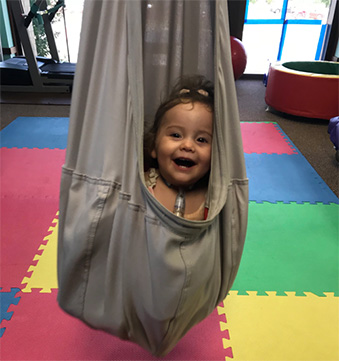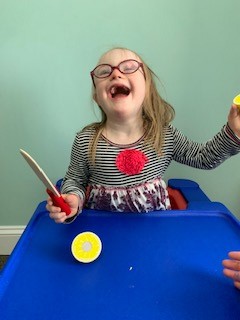

More on sensory processing….
OT and sensory processing go hand in hand! Our knowledgeable and experienced occupational therapists understand sensory processing disorders and can help your child feel better within. When the sensory system goes awry, this impacts behavior, learning, social engagement and skill acquisition. Simply put, sensory processing isn’t about using figit toys and “giving” in to behaviors often labeled as “sensory stimming”. When a child is left to their own devices they will find ways, and not always socially acceptable ways, to “try” and regulate how their body feels. At the time parents may think that is behavior pleases the child and keeps them happy, but understanding that your child’s neurological system is getting its wires crossed causing your child to misinterpret information about their environment is really what is happening. Regulating the neurological system ultimately helps the child feel comfortable in their own body.
Occupational Therapists assess and treat sensory processing disorder. OT’s understand that a child’s ability to process sensory information appropriately impacts overall development on multiple levels. Without the ability to properly process sensory information, a child may demonstrate speech and feeding difficulties, social-emotional delays, deficits in acquiring motor skills at age appropriate times, and overall deficits in strength and coordination. When it comes to sensory processing problems, a child doesn’t “grow out of it”. The natural instinct for a human is to find some way to make the body feel better; often this is when maladaptive behaviors are formed. Sensory issues that are left untreated can have life lasting/ alternating effects, leading to anxiety disorders in early teen years, social emotional issues, problematic behaviors and restrict learning. The “wait and see” approach is never the way to go. Reach out to CTC today and let us help your child begin to feel better and have happier days!



